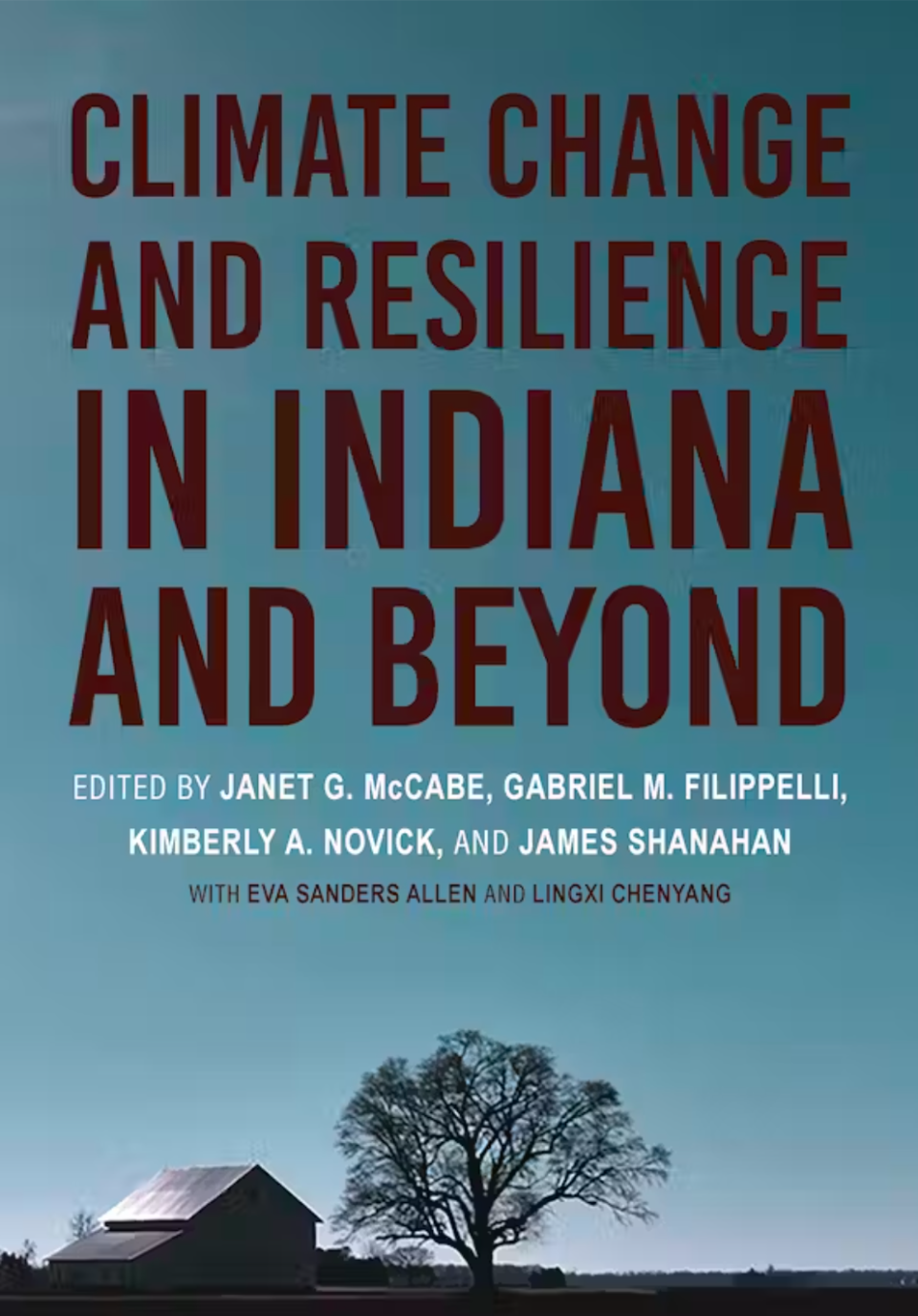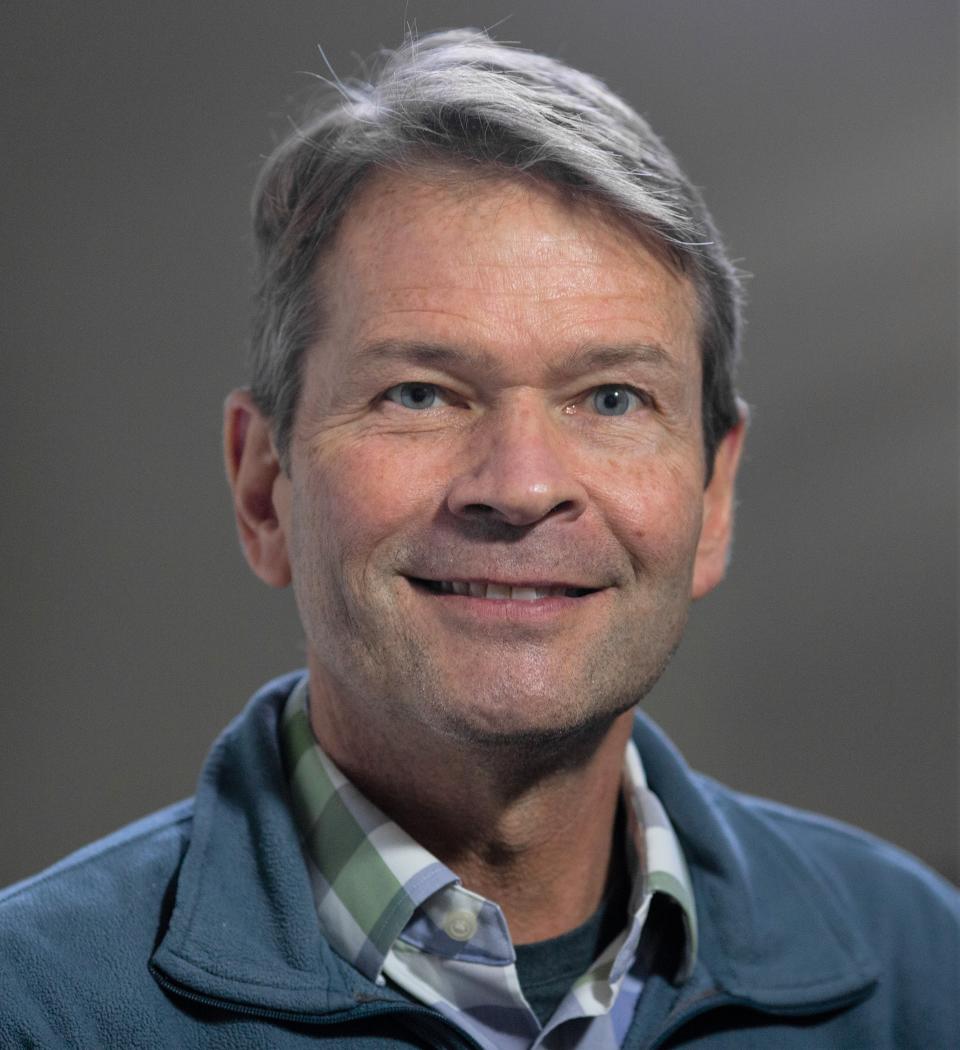Climate change not ‘theoretical, or even debatable,' an IU expert says. What's the solution?
Climate change already is affecting the everyday lives of Hoosiers and experts at Indiana University are exploring potential solutions.
Gabe Filippelli, executive director of IU’s Environmental Resilience Institute, is leading a seminar Thursday at Carmel Clay Public Library to discuss climate challenges and how the state can build resiliency. Filippelli and the institute are working with IU Press to produce a series of books documenting how Hoosiers are working together to combat climate change.
To learn more about the books and climate challenges in Indiana, IndyStar spoke with Filippelli. The following Q&A has been edited for brevity and clarity.

IndyStar: What are the current climate challenges Hoosiers are facing?
Gabe Filippelli: We do have some significant short-term challenges and one of them is flooding. We're already seeing a lot more extreme rainfall events and … we're going to see even more into the future. So, we're getting these extreme events and our infrastructure simply is not up to par. A lot of it is old. And particularly in cities and towns, flooding becomes a real loss for people, but it can also disrupt emergency services.
The other issue is extreme heat. We see an increase in extreme heat events globally, but also right here in Indiana and it brings challenges to two sectors. One is outdoor laborers, but also, a lot of our cities have significant urban heat islands — areas of cities that are warming up, just because we haven't built them to be cool. And so urban areas are a lot hotter, which poses a particular risk for lower income people who maybe don't have access to cooling, as well as elderly and those with preexisting conditions. The other sector it impacts are crops and forests. High temperatures significantly decrease crop yields depending on what time of year it is.
What solutions do you and other experts within this field hope to see Indiana implement?
There’s been a certain assumption that we can't build climate change into any long-term planning. Well, if we don't, we’re going to be facing a heck of a lot of pain in the future.

Some of those solutions include thinking about cities. So, we work with them largely to talk about: What's your stormwater plan? What's your long-term plan? Do they include ways to make cities or towns more absorbent to rainwater?
That's one area that we work on, and the other is mitigating extreme heat in an equitable way. So we have worked with two cities in particular, Clarksville and Richmond, to do what's called Beat the Heat programs. So, we do an analysis using a lot of community input about what is the signature of heat in your town? What drives that? And how can you use that green infrastructure like trees and pocket parks and other things to cool down communities ... We’ve seen if you take a city like Indianapolis, and if you look at its heat signature and compare that to the redlined areas from the early part of last century, you'll see a terrible overlap. So formerly redlined areas still have much lower environmental quality than non-redlined areas, because they tend to be less green, and they have a lot more infrastructure in them. So, we're trying to help communities counteract that impact.
More on climate change: Indiana at risk of losing its industrial dominance if it doesn’t decarbonize, report says
What can Hoosiers do to help our situation in the face of climate change?
One really important thing is to learn about it and the fact that climate change isn't a theoretical, or even a debatable issue. We're already seeing it happen, and we actually have really good ways of guessing what's going to happen in the future.
So, think about: Does my community … have a climate action plan so that you're making smart investments instead of unwise ones? Learn that (climate change) is not a partisan issue, and the only thing really up to debate is what we do about it ... The other obvious thing is to consider voting for (candidates willing to address) climate change.
How to attend the seminar
Filippelli will be speaking from 6-7:30 p.m. Thursday in Community Room A at the Carmel library, 425 Main St. The program is free and no registration is required. Autographed copies of the first book in series will be available for purchase.
Karl Schneider is an IndyStar environment reporter. You can reach him at karl.schneider@indystar.com. Follow him on Twitter @karlstartswithk
IndyStar's environmental reporting project is made possible through the generous support of the nonprofit Nina Mason Pulliam Charitable Trust.
This article originally appeared on Indianapolis Star: Climate change brings flooding, extreme heat; expert talks solutions

